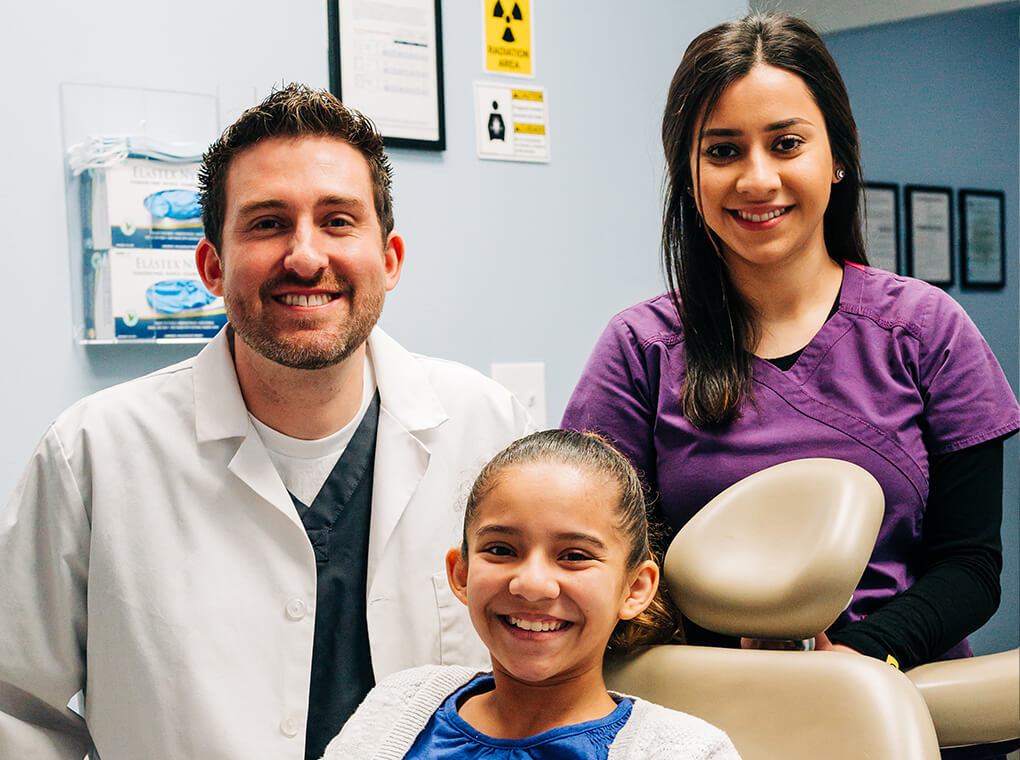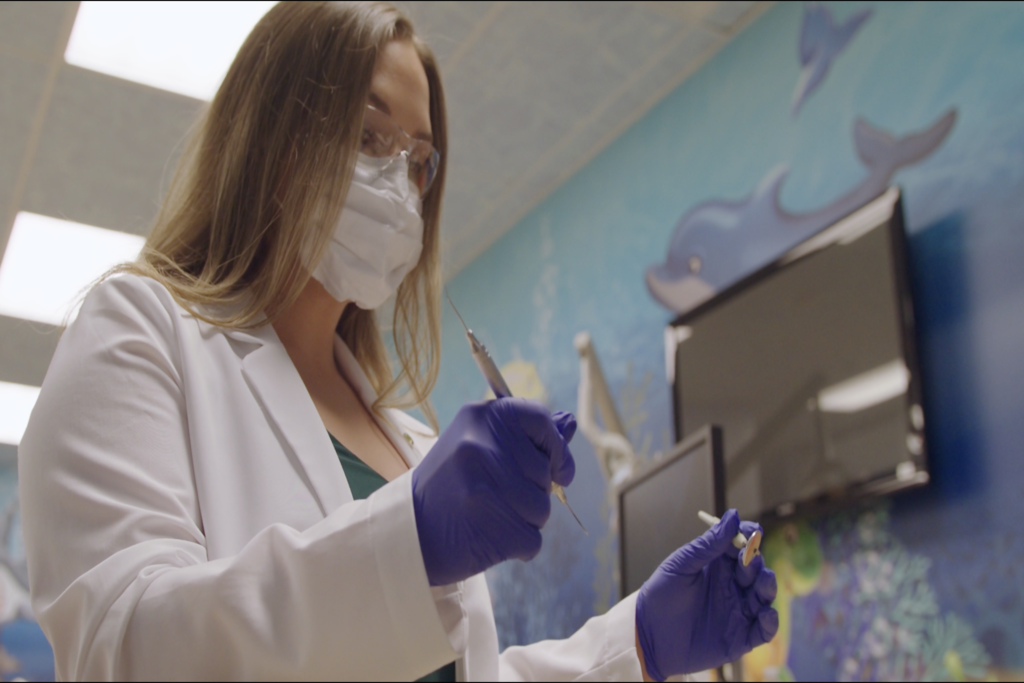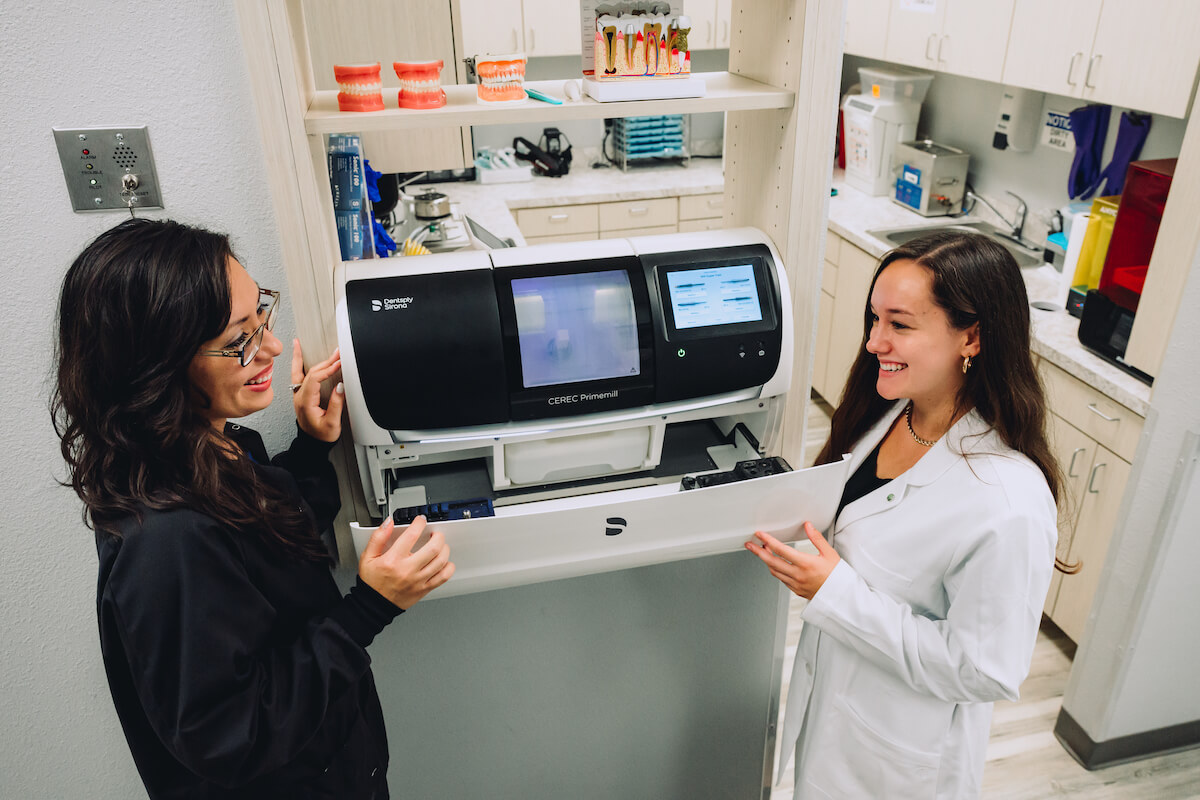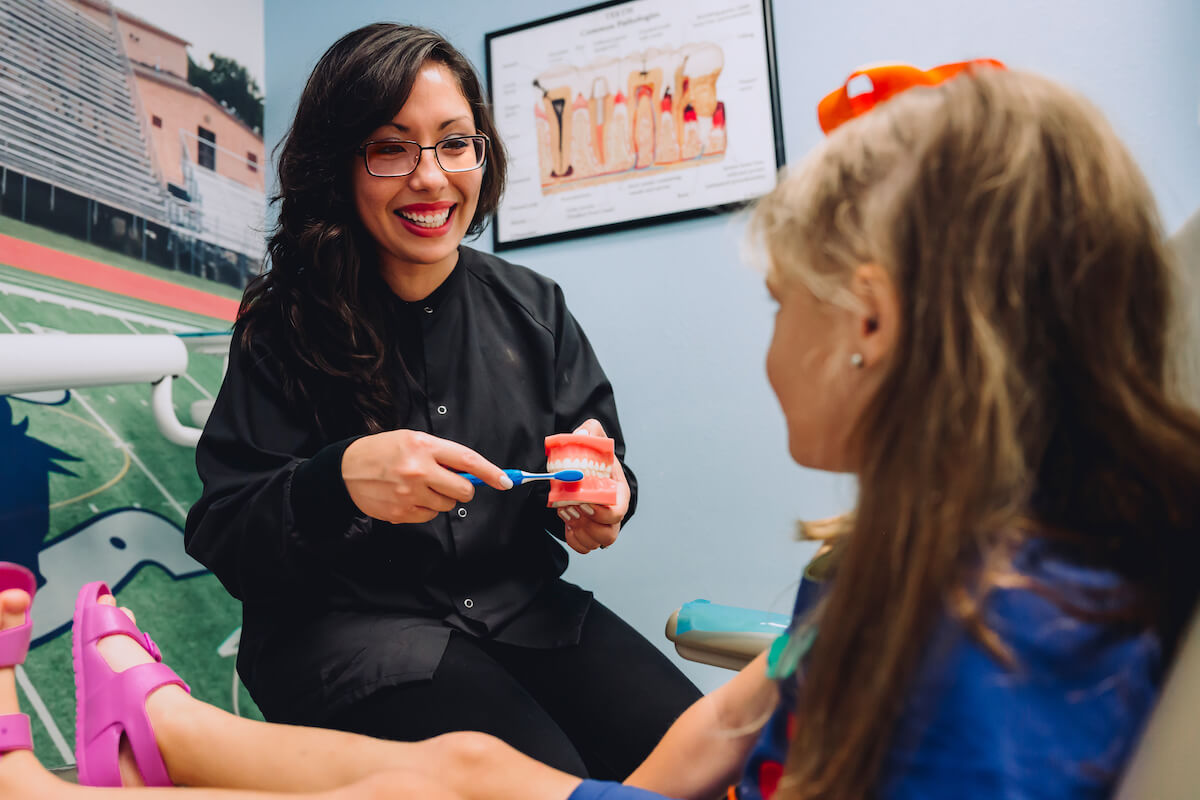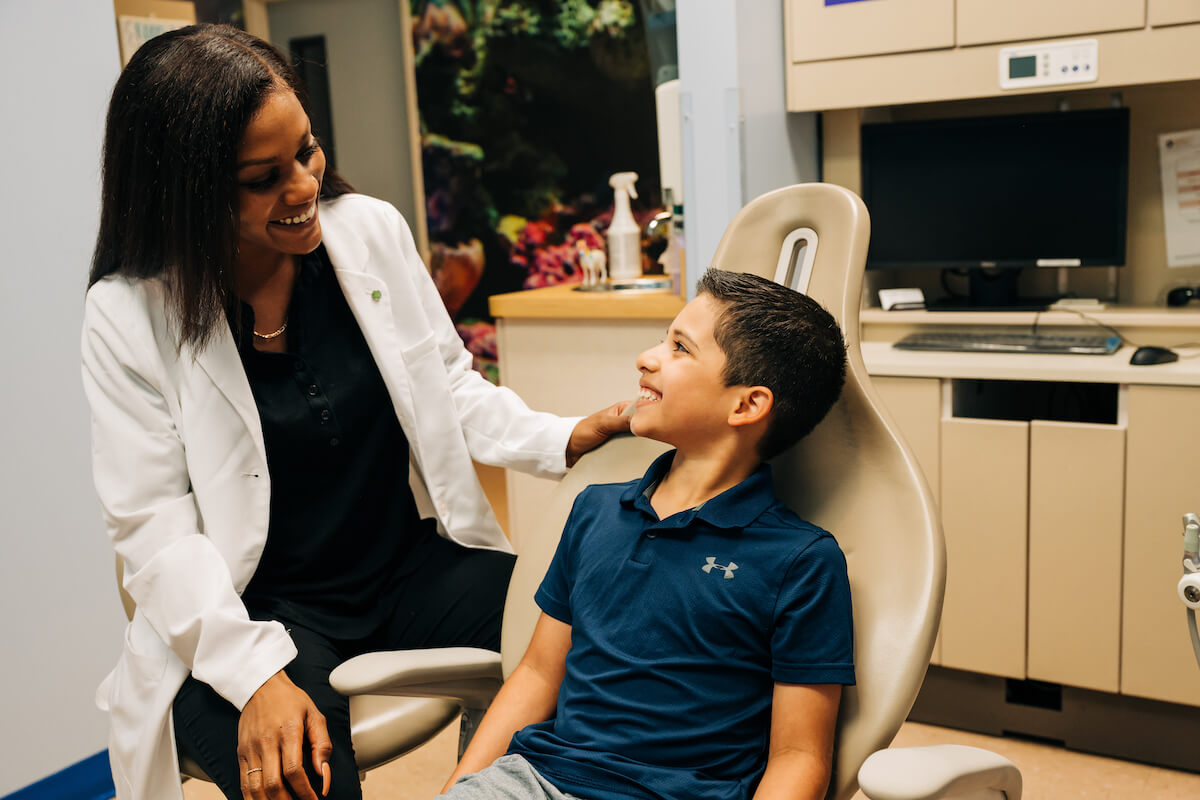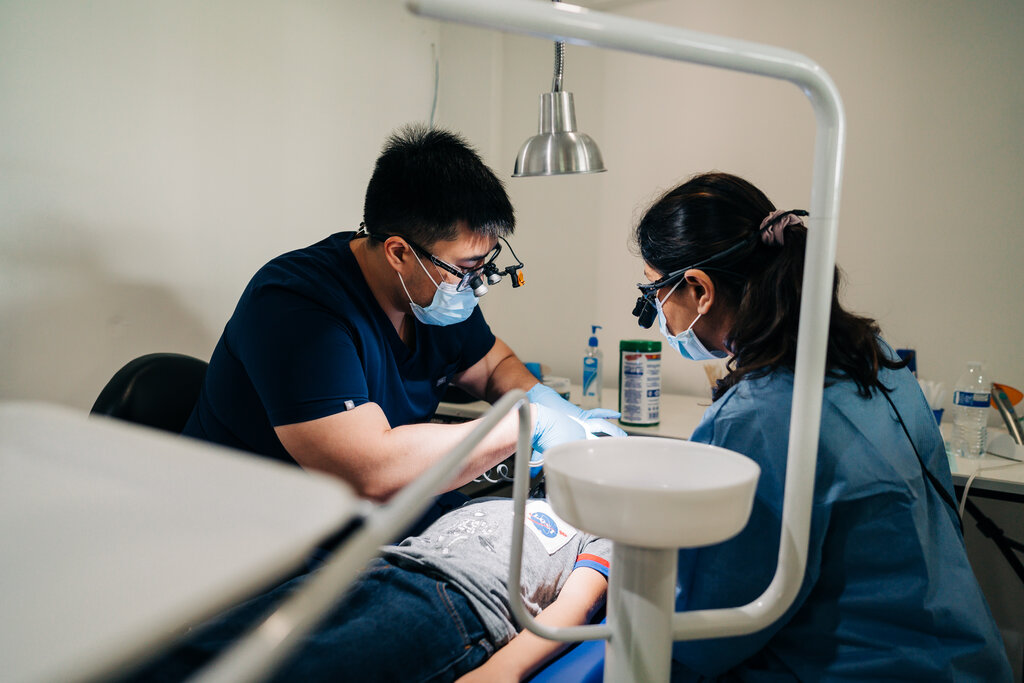
For soon-to-be or recent dental school grads with aspirations beyond the typical scope of most dental specialties, oral and maxillofacial surgery jobs (OMFS) might be an enticing prospect. Many people associate OMFS with routine surgical interventions like wisdom tooth extractions that can’t be handled in a general dental environment. While extractions can undoubtedly be a frequent part of your schedule, oral and maxillofacial surgery goes far beyond the average dental job. Here are 4 things to know before pursuing an OMFS career.
1. Oral and Maxillofacial Surgery Jobs Need True Specialists
There are aspects of many dental specialties that can be performed by general dentists without the need for extra years of schooling. Anyone with a dental degree and a license can work on kids, even if they’re not a pediatric dentist. General dentists can take classes to stretch their scope of practice to include implant placement, simple endodontics, and even some orthodontia. Unlike other specialties, oral and maxillofacial surgery is somewhat immune to the slow blurring of lines between practice types.
Because maxillofacial surgeons perform procedures that most practices aren’t equipped for, OMFS has good job stability. It’s a narrower field than general dentistry, so you may be limited to maxillofacial job selection regarding where you want to practice. However, while you may have a few locations and practice types to choose from, you’ll be in demand and should be able to find a job or build your own practice.
As an OMFS, you’ll have skills that go far beyond most dentists. OMFS performs a variety of corrective jaw surgeries and treats facial deformities and severe malocclusion. You may be called upon to correct facial deformities and possibly treat cancer. You’ll be extensively trained in anesthesia, including airway maintenance and intubation.
Specialize Even Further with a Fellowship
Depending on your sub-specialty and where you work, you’ll see various case types working as an oral and maxillofacial surgeon. After completing your OMFS residency, you can specialize even further with a fellowship. You don’t need a sub-specialty fellowship to practice as a maxillofacial surgeon. Even without a sub-specialty, you’ll enjoy a broad spectrum of work. In general, oral and maxillofacial surgery jobs focus on the teeth and temporomandibular joint and may involve anything from urgent trauma treatment in a hospital setting to outpatient surgery in a private practice.

2. Oral and Maxillofacial Surgery Jobs Have Extensive Requirements
Oral and maxillofacial surgery requires an additional four years of residency after dental school and licensure as a dentist. You’ll also have to pass a qualifying exam before applying for said residency, meaning you’ll be doing extra prep while worrying about board exams and graduation. Residency positions are highly competitive, and less than half of applicants will receive an acceptance letter.
Therefore, some candidates take a year or two to work as dentists before pursuing a specialty like OMFS. It’s always a good idea to have a little experience under your belt regardless, and working for a year makes you a stronger candidate for the residency of your choice.
However, your education may not be complete even after the additional four years of training! There is an alternative six-year dual degree option that will earn you an MD alongside your maxillofacial credential. Beyond either the four- or six-year options, however, there can also be an option to pursue a sub-specialty fellowship. This option adds another year or two of study and deepens your knowledge and scope of practice in one area.
Main Branches of Sub-Specialty for OMFS:
Facial Cosmetics
Becoming a cosmetic or plastic surgery specialist means you will be able to perform a variety of procedures. From basic facelifts to complex rhinoplasty, this specialty will allow you to help patients reclaim their confidence and improve function for many structures of the head and face.
Cleft and Craniomaxillofacial Surgery
Doctors wanting to treat cleft lip and palate and other significant facial deformities can focus their education and career on these interventions. These surgeries can be intricate and impact the patient’s life significantly. Many craniofacial surgeons are plastic surgeons who augment their scope with this additional certification.
Head and Neck Oncology
Head and neck cancers can be among the most disfiguring of any malignancy. Specializing in head and neck oncology will allow you to treat tumors of the head, neck, oral cavity, and salivary glands. It will likely involve aspects of reconstructive surgery as well. While this fellowship is more common for ear, nose, and throat (ENT) surgeons than maxillofacial surgeons, it can also be an interesting potential avenue for advancement for OMFS.
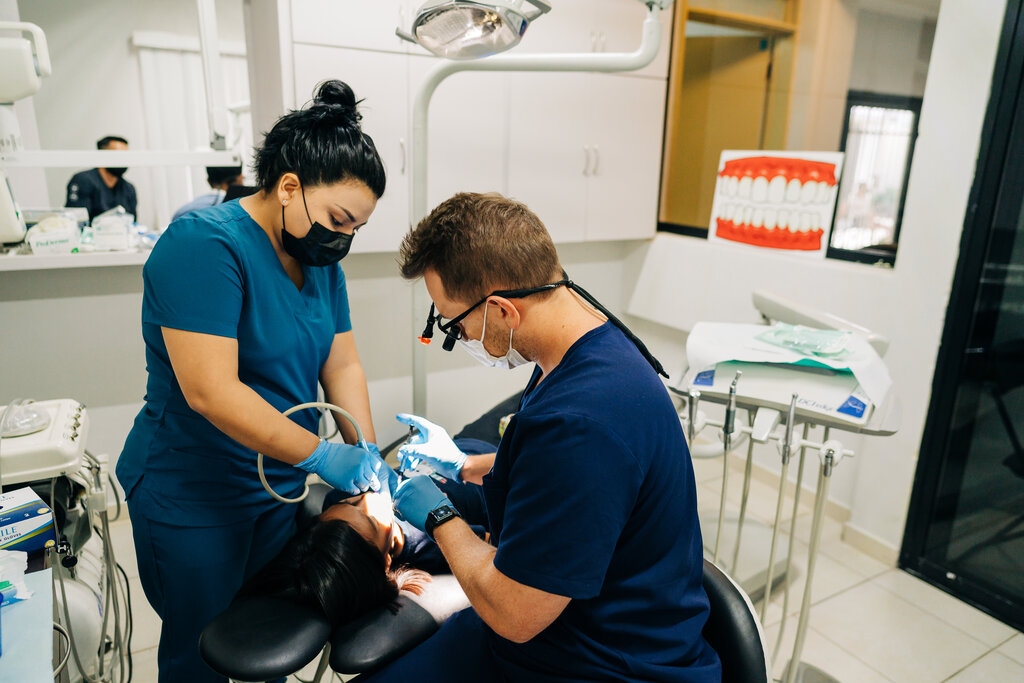
3. Maxillofacial Surgeons Work in a Variety of Settings
Oral and maxillofacial surgery jobs can be found in a variety of settings. While many work in private outpatient settings, you can also find placements in a hospital or academic setting. Maxillofacial surgeons working in an academic setting. They will see more rare, complex, and emergency cases than you may see in private practice. In hospital and academic jobs, you may treat everything from severe facial traumas to life-threatening infections and other emergencies.
However, true emergencies won’t make up the bulk of your day, even in a hospital maxillofacial surgery job. Many cases appropriate for your expertise will be assigned to ENT surgeons and other specialists whose scope overlaps with OMFS.
Working in a practice often gives you a more flexible schedule and generally provides a less stressful work environment. Like any other dental job, however, going into business on your own can bring demands and stress. Partnering with a DSO like CDP can help you achieve a work-life balance that can ensure a long and fulfilling oral and maxillofacial surgery career.

4. Maxillofacial Surgery Is a High-Stress Job
Oral and maxillofacial surgery jobs come with outstanding benefits. Your work as a surgeon will be truly life-changing for many patients. It demands deep intellectual engagement, excellent dexterity and skill, and a superior ability to plan for multifaceted, complex cases. If you’re looking for a career that will take you beyond the daily grind of filling cavities, OMFS may be for you.
You should be aware that OMFS is one of the most stressful of any dental specialty. The work is typically higher risk, so you’ll work under more pressure than your average dental doctor. Maxillofacial surgeons frequently serve as surgeons and anesthetists simultaneously. This means your patients’ lives will be in your hands more often than most dental practitioners.
Maxillofacial surgeons need to seek out or build a work environment that will help them cope with job demands. You’ll want to work somewhere with a culture that supports your focus and energy. This will allow you to do your best work and avoid burnout.
Additionally, all that extra schooling comes at a cost. OMFS carries a heavier student loan debt than most other specialties. While surgeons can expect a higher paycheck than most general dentists, many report their debt as a significant stressor.
In Closing
As you consider different specialties, remember that career fulfillment comes from balance. You want to stay focused on your work, so look for something that will challenge you and keep you learning. However, be realistic about your ability to cope with the job’s demands. Working with CDP can help you find that balance with an oral and maxillofacial surgery job. Schedule a call with a Hiring Manager to learn more about an excellent oral and maxillofacial surgery career at CDP!


